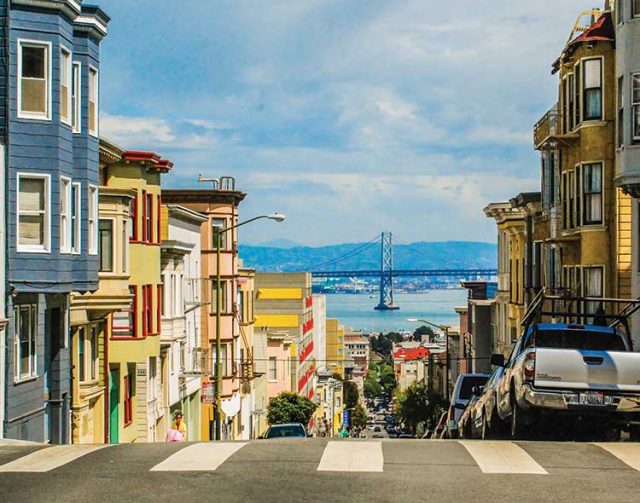Aside from Bill Gates and a handful of scientists and civil servants, few foresaw the pandemic that hit us in 2020. As Covid-19 spread, all the cheery economic forecasts for that year went out the window. Nevertheless, we are once again here to try to tell you what might be in store for San Francisco real estate in 2021.
COMPETITIVE ADVANTAGES
The National Association of Realtors predicts a 1.3 percent year-over-year growth in sales, and an 8.4 percent increase in home prices in the coming year. This is for the entire San Francisco–Oakland–Hayward metro area, but you get the idea. In San Francisco, the consensus among real estate experts is we can expect a low volume of sales, and a healthy but single-digit increase in home values in 2021.
Single family homes are in demand, while condos in high rises are less appealing. However, these same condos may once again attract buyers as the roll out of the vaccine gains momentum in the first half of the year, and Covid-19 becomes less of a factor.
For years San Francisco was the hottest real estate market in the country. Not any more, according to many experts. For example, the real estate news site Mansion Global says, “A movement of value-seekers leaving the San Francisco Bay Area for Sacramento got supercharged during the coronavirus pandemic, when many were allowed to work remotely. That influx is expected to continue into 2021.”
Suddenly second-tier cities are becoming hot spots for real estate. A piece by real estate writer Sylvia Shalhout says the best places in California for cash-on-cash return include Madera, Cathedral City, Bakersfield, Oroville, and Chula Vista.
You might ask, How is this possible? Price is one thing, but what about quality of life? Sadly, as it turns out, quality of life even in San Francisco isn’t what it once was.
According to senior broker associate Eileen Mougeot of Corcoran Global Living, the city is facing some challenges that extend beyond Covid-19 and the high cost of housing. “The thing that concerns me most about the San Francisco real estate market is the condition of San Francisco. I know more and more people who are talking about leaving the city, and in fact actually leaving. I think we have to acknowledge that.”
Mougeot is one of the most positive people I know. For her to express this concern is saying something.
“The homeless situation is terrible. San Francisco is dirty. There are more and more car break-ins. A lot of people have had enough and want out. Something really has to be done.”
A MIXED BAG
In the next 12 months, the coronavirus should be less of an issue. But the condition of the city will take longer to address. It requires new thinking, and new resolve — for everyone’s sake, including those currently on the streets.
Mougeot is hopeful. “I can’t imagine the city won’t come back from all of this. After the ’89 earthquake, people said everyone is going to leave the Marina and this is the end of San Francisco. And there were people who left, for sure. But look, how long did it take the Marina to recover — a couple of years maybe? Three years at most. This city just has too much to offer. It’s too important, and too beautiful really, for it not to recover from all that’s going on right now.
“I’ve always believed in real estate,” said Mougeot. “I’ve seen this time and again over the years. If you can hold on to properties during a bad time, you are going to come out really well. The city has always managed to turn itself around.”
San Francisco real estate is a mixed bag. Noe Valley is currently booming, because of its relatively sunny weather, charming 24th Street, and a preponderance of single family homes. But if you want a deal, it might be hard to beat a condo in a San Francisco high rise. Prices have been reduced, and mortgage rates are extremely low. There was a time when borrowers would not stand a chance against buyers offering all cash. That is no longer the case, as fewer and fewer all-cash offers are being made.
Looking at real estate across the nation, Realtor.com pointed out that in 2020, the seasonal pattern for home sales was thrown out of whack by the arrival of the coronavirus and shelter-at-home orders. This all came just as the spring selling season was about to begin. When home sales became more possible again, the uneven return of buyers and sellers created a housing market frenzy across the country — pushing the number of homes sold to decade highs while days-on-market dropped to new lows.
Understanding this backdrop will be key to evaluating data in 2021. Realtor.com expects the housing market to settle into a much more normal pattern in the coming year, and as a result, year-over-year trends will need to be understood in the context of the unusual 2020 base year.
Feedback: [email protected]





